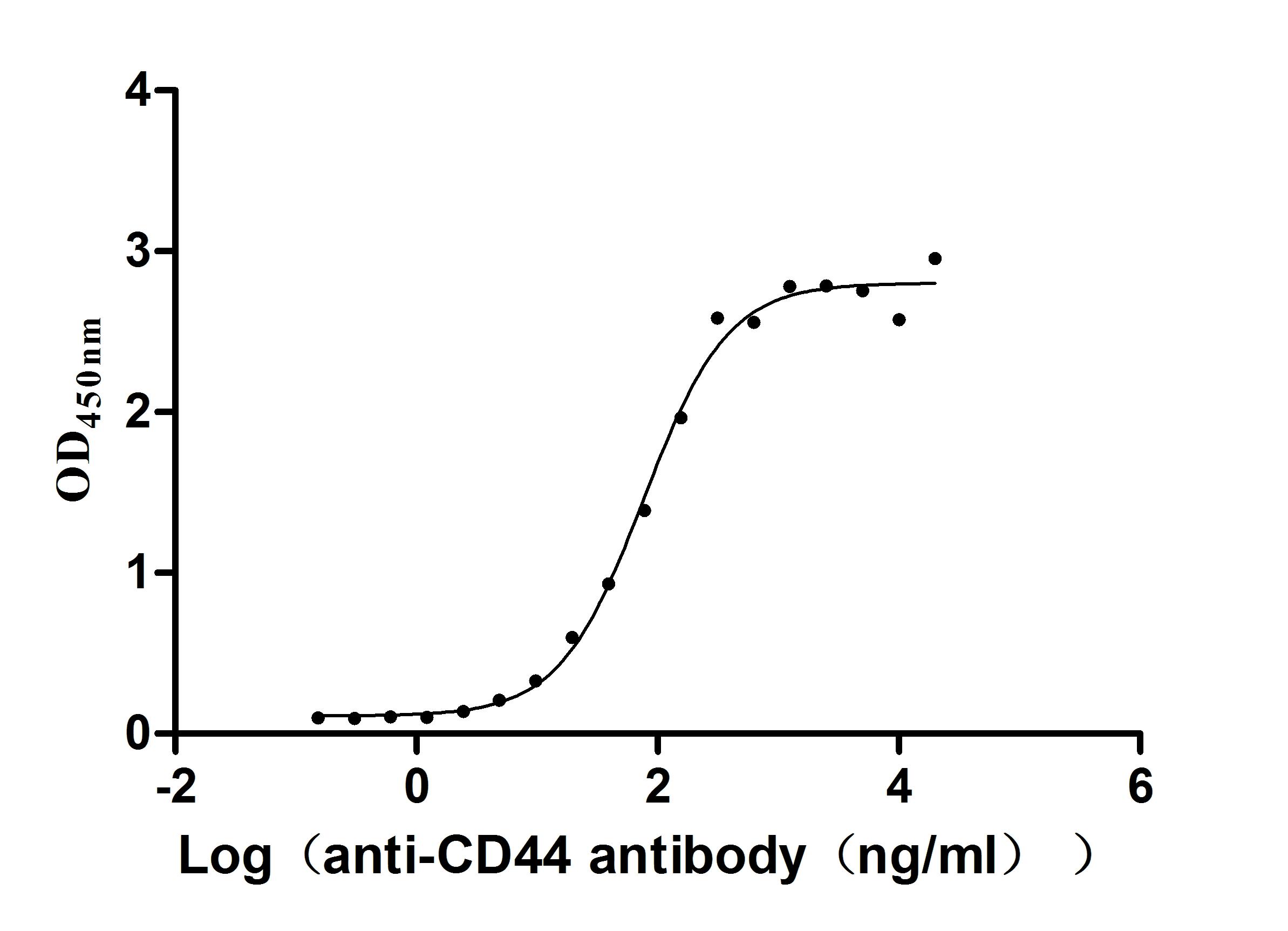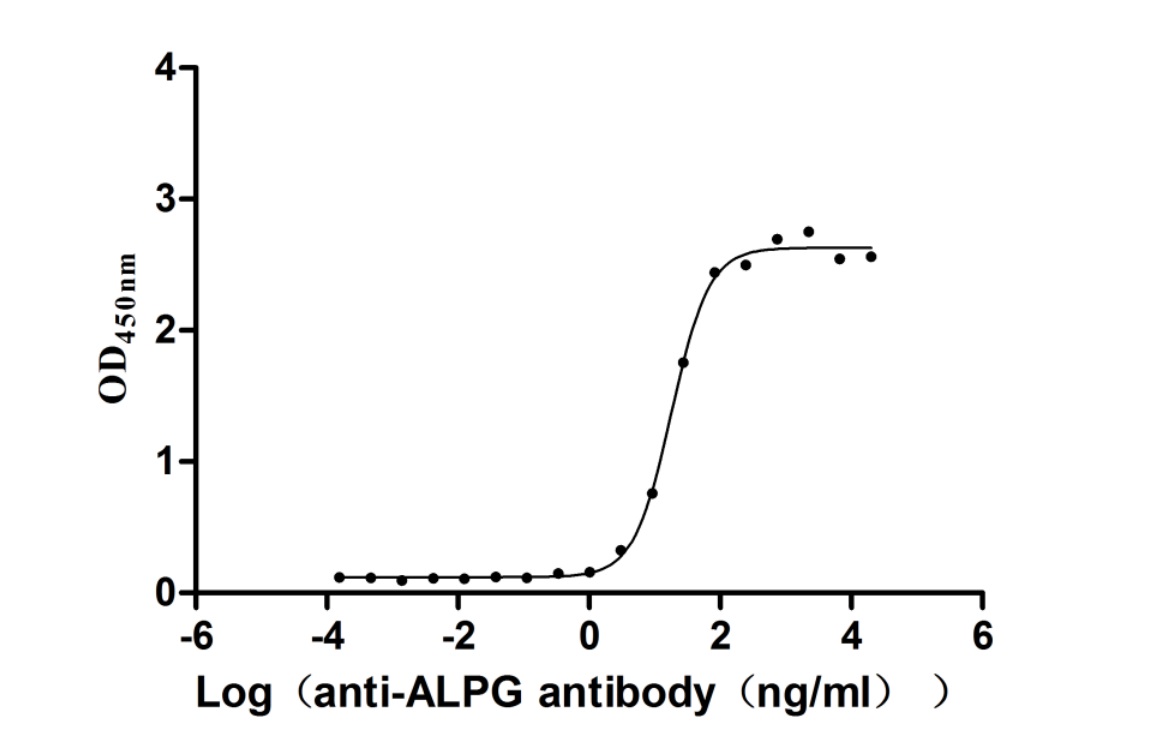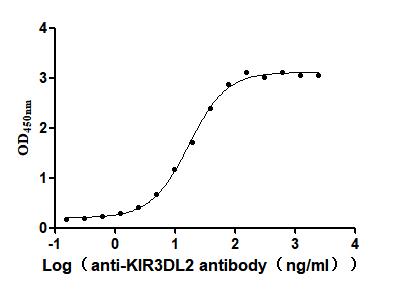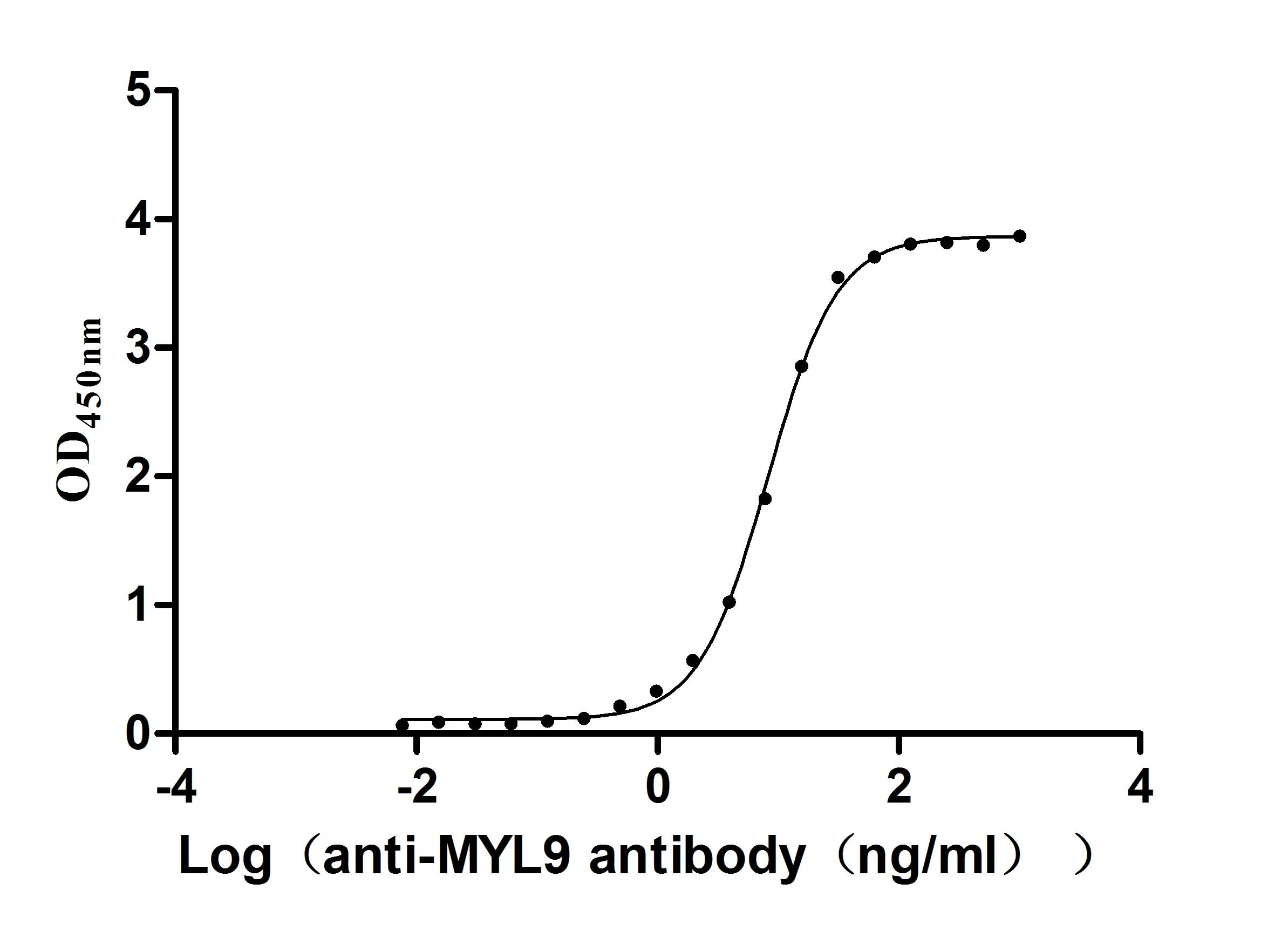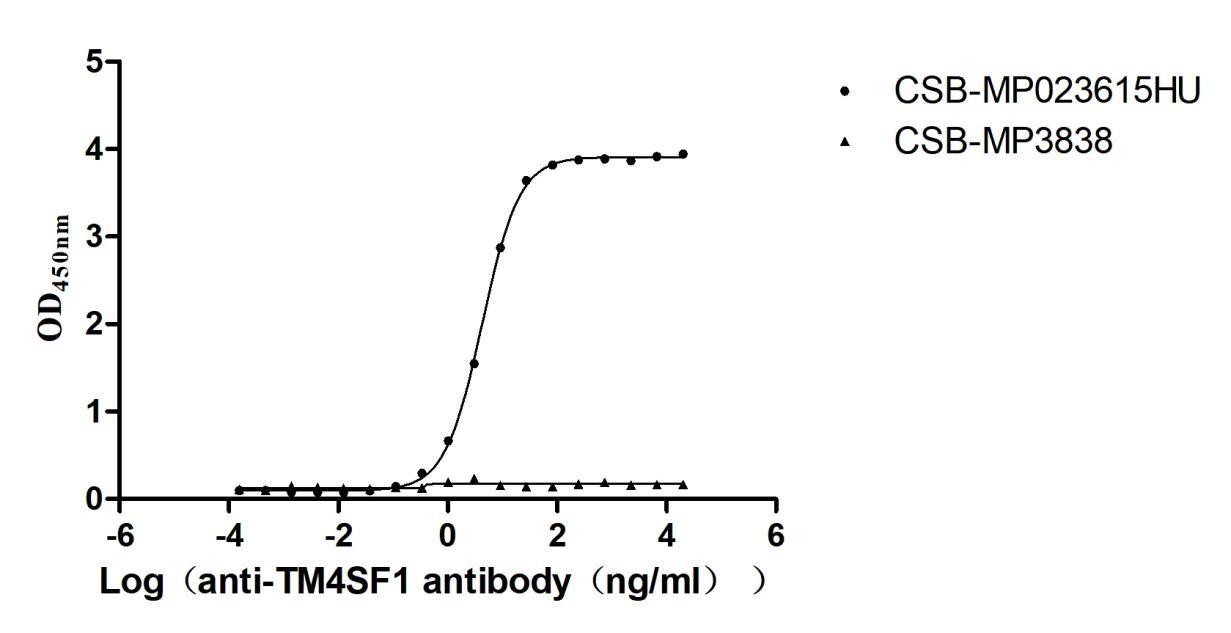Recombinant Rat Corticotropin-releasing factor receptor 2 (Crhr2)
-
中文名称:Recombinant Rat Corticotropin-releasing factor receptor 2(Crhr2)
-
货号:CSB-CF005966RA
-
规格:
-
来源:in vitro E.coli expression system
-
其他:
产品详情
-
基因名:
-
Uniprot No.:
-
别名:Crhr2; Crf2r; Corticotropin-releasing factor receptor 2; CRF-R-2; CRF-R2; CRFR-2; Corticotropin-releasing hormone receptor 2; CRH-R-2; CRH-R2
-
种属:Rattus norvegicus (Rat)
-
蛋白长度:Full Length of Mature Protein
-
表达区域:18-411
-
氨基酸序列LAEELLLDGWGEPPDPEGPYSYCNTTLDQIGTCWPQSAPGALVERPCPEYFNGIKYNTTR NAYRECLENGTWASRINYSHCEPILDDKQRKYDLHYRIALIINYLGHCVSVVALVAAFLL FLVLRSIRCLRNVIHWNLITTFILRNITWFLLQLIDHEVHEGNEVWCRCVTTIFNYFVVT NFFWMFVEGCYLHTAIVMTYSTEHLRKWLFLFIGWCIPCPIIVAWAVGKLYYENEQCWFG KEPGDLVDYIYQGPIILVLLINFVFLFNIVRILMTKLRASTTSETIQYRKAVKATLVLLP LLGITYMLFFVNPGEDDLSQIVFIYFNSFLQSFQGFFVSVFYCFFNGEVRSALRKRWHRW QDHHALRVPVARAMSIPTSPTRISFHSIKQTAAV
Note: The complete sequence including tag sequence, target protein sequence and linker sequence could be provided upon request. -
蛋白标签:N-terminal 10xHis-tagged
-
产品提供形式:Liquid or Lyophilized powder
Note: We will preferentially ship the format that we have in stock, however, if you have any special requirement for the format, please remark your requirement when placing the order, we will prepare according to your demand. -
缓冲液:Lyophilized from Tris/PBS-based buffer, 6% Trehalose, pH 8.0
-
储存条件:Store at -20°C/-80°C upon receipt, aliquoting is necessary for mutiple use. Avoid repeated freeze-thaw cycles.
-
保质期:The shelf life is related to many factors, storage state, buffer ingredients, storage temperature and the stability of the protein itself.
Generally, the shelf life of liquid form is 6 months at -20°C/-80°C. The shelf life of lyophilized form is 12 months at -20°C/-80°C. -
货期:Basically, we can dispatch the products out in 1-3 working days after receiving your orders. Delivery time may differ from different purchasing way or location, please kindly consult your local distributors for specific delivery time.Note: All of our proteins are default shipped with normal blue ice packs, if you request to ship with dry ice, please communicate with us in advance and extra fees will be charged.
-
注意事项:Repeated freezing and thawing is not recommended. Store working aliquots at 4°C for up to one week.
-
Datasheet & COA:Please contact us to get it.
相关产品
靶点详情
-
功能:G-protein coupled receptor for CRH (corticotropin-releasing factor), UCN (urocortin), UCN2 and UCN3. Has high affinity for UCN. Ligand binding causes a conformation change that triggers signaling via guanine nucleotide-binding proteins (G proteins) and down-stream effectors, such as adenylate cyclase. Promotes the activation of adenylate cyclase, leading to increased intracellular cAMP levels.
-
基因功能参考文献:
- Significantly higher CRF1 and CRF2 receptor levels after sensitization were detected in the Hippocampus. Additionally, CRF2 receptor levels were augmented by sensitization in the PreFrontal Cortex, and treatment and time-induced increases were detected in the Dorsal Striatum. PMID: 29857328
- CRF2 signaling could modulate intestinal epithelial cell differentiation. These mechanisms could be relevant to the stress induced epithelial alterations found in inflammatory bowel diseases. PMID: 28811708
- The results suggest that one of the mechanisms of the CRF-induced analgesic effect may be mediated by CRF-R2 receptors located in periaquaductal gray matter PMID: 27779480
- CRFR2 was elevated 3-7days following the auditory stimulus in rats. PMID: 27538655
- Water avoidance stress induced visceral hyposensitivity through peripheral CRF receptor type 2 and central dopamine D2 receptor, but not through opioid pathways PMID: 26662216
- UCN2 can modulate electrical remodeling of the myocardium and hemodynamics in an experimental model of spontaneous hypertensive rat via inhibition of L-type calcium channel and CRFR2 in cardiomyocytes PMID: 25712670
- In the hippocampus and hypothalamus, CRH-R2 mRNAs did not change despite acute or chronic noise stress in this study. PMID: 26333123
- Rats undergoing withdrawal showed increased anxiety-like behavior, which was reduced by ventricular infusion of the CRF2 antagonist antisauvagine-30 (ASV 2 mug/2 mul). PMID: 25205625
- Peripheral CRF2 activation induces colonic hyperemia through nitric oxide synthesis, without involving prostaglandin synthesis or sensory nerve activation. PMID: 25701320
- estrogens act on ERalpha to up-regulate CRHR2 expression in cardiomyocytes. PMID: 24035863
- Estrogens maintain CRHR2 expression in myocardium, which may through an epigenetic mechanism, and enhance UCN-induced cardioprotective effects against I/R injury. PMID: 23962778
- CRF(2) may have a modulatory action to CRF(1) signaling in gastric motor activity. PMID: 23205497
- Npy and Crfr2 have been previously identified as candidate genes of interest underlying the chromosome 4 QTL for alcohol consumption in inbred alcohol-preferring and inbred alcohol-nonpreferring rats. PMID: 23312492
- The hypothalamic expression CRF)-R was modulated by the feeding states in lean but not obese rats. PMID: 22227020
- CRHR2 activation decrease collapsin response mediator protein 3 expression in hippocampal neurons via a mechanism that is dependent on phospholipase/PKC signaling pathways. PMID: 22245585
- CRH-R2 mRNA expression was significantly lower in the basomedial amygdala of male PNS (prenatally stressed) rats compared with controls, but greater in female PNS rats, with no change in the basolateral amygdala or medial amygdala in either sex. PMID: 21854167
- These data support a model in which an excess in CRF(1) receptor activation, combined with reduced CRF(2) receptor signaling, may contribute to stronger expression of anxiety-like responses. PMID: 21376756
- Knockdown of corticotropin-releasing factor 2 by RNA interference during colitis significantly decreased the macroscopic lateral spread of ulceration PMID: 21330446
- The pseudo signal peptide of the corticotropin-releasing factor receptor type 2a decreases receptor expression and prevents Gi-mediated inhibition of adenylyl cyclase activity. PMID: 20682782
- Type 2 CRF receptors in the VMH mediate some of the central effects of Ucn 3, and the arcuate nucleus melanocortin system may be a downstream target of VMH CRFR2 neurons. PMID: 19952342
- These results indicated that endogenous CRF and/or related ligands that were released in the MRN could activate the CRF(2) receptor and stimulate serotonin release in the ventral hippocampus, thereby inducing fear memory retrieval. PMID: 20072117
- Urocortin 1 prevents indomethacin-induced small intestinal lesions, and that this action is mediated by the activation of CRFR2 and is functionally associated with the suppression of the intestinal hypermotility response caused by indomethacin. PMID: 19707872
- despite adult-like effects of leptin on POMC, neuropeptide Y, and corticotropin releasing factor receptor-2 expression in neonates, leptin does not regulate food intake during early development PMID: 12446596
- CRF receptor 2 in the anterior pituitary might be involved in the regulation of gonadal functions under stress. PMID: 12639937
- in mediating the ACTH response to shocks, alcohol and LPS, the influence of CRF(2) receptor remains subtle. PMID: 12746300
- Localization in cerebellar afferents implies pre-synaptic control of release of CRF-like ligands, impacting on sensory information being transmitted from afferents. Membrane bound at synapse. Role modulating afferent inputs. PMID: 12911751
- described for the first time a novel activity of the CRF2R, modulation of skeletal muscle mass PMID: 12959937
- At midlevels, CRF-R2 mRNA is expressed exclusively in serotonin neurons of the dorsal raphe, whereas at caudal levels approximately half the CRF-R2 mRNA is expressed in GABAergic neurons. PMID: 15174080
- No expression of CRF2 receptor transcripts was observed in the paraventricular nucleus, either in basal conditions or after TNBS induced colitis PMID: 15178552
- CRF-R2 mediates, at least in part, restraint stress-induced inhibition of LH pulses and may play a pivotal role in the normal physiological response of stress-induced suppression of the hypothalamic GnRH pulse generator and hence the reproductive system. PMID: 15388651
- ligand binding properties of CRFR2 PMID: 15652653
- The CRF2-mediated depression of excitatory transmission observed in control animals was switched to facilitation after withdrawal from chronic cocaine administration. PMID: 15659593
- study demonstrated that p38 MAP kinase is involved in the down-regulation of CRFR2beta mRNA levels induced by Ucn1, while anisomycin leads to up-regulation of this receptor mRNA levels in A7r5 aortic smooth muscle cells PMID: 15664670
- Changes in gastric motility induced by IV injection of des-acyl ghrelin were completely antagonized by ICV injection of a selective corticotropin-releasing factor (CRF) 2 receptor antagonist PMID: 16012930
- Urocortin 2, or another CRF-related neuropeptide acting at CRF2 receptors, modulates physiological and behavioral responses to stress-related stimuli via actions on a specific subset of serotonergic neurons within the dorsal raphe nucleus. PMID: 16403469
- Distinct isoforms of the corticotropin releasing factor receptor are present in the cerebellum, supporting a concept that corticotropin releasing factor modulaties activity in cerebellar circuits and ultimately in controlling motor behavior. PMID: 16413121
- Results provide the first detailed analysis of the cellular localization of the full-length form of corticotropin releasing factor receptor 2 in rat cerebellum during early postnatal development. PMID: 16820012
- Hypoglycemia and lipopolysaccharide stress-induced LH suppression involves activation of CRF(2) while restraint stress-induced inhibition of LH pulses involves both CRF(1) and CRF(2). PMID: 16867181
- The results implicate the VMN and PVN of the hypothalamus as sites for Ucn 3-CRF(2) control of food intake. PMID: 17019404
- Presence of a prominent CRF2 signaling system in the esophagus suggesting a functional role in secretomotor activity and epithelial and muscle cell proliferation. PMID: 17218420
- Opposing role of the CRF(2) receptor subtype within the central nucleus of the amygdal in mediating ethanol self-adminstration withdrawal. PMID: 17512918
- A CRHR-2-mediated mechanism in the brain stimulates corticotropin-releasing hormone- and arginine vasopressin-producing neurons in parvocellular paraventricular nucleus, resulting in plasma adrenocorticotropic hormone secretion. PMID: 17551262
- These findings suggest that CRH-R2 mediates orexin A-induced LH suppression and it is possible that CRH and UcnII in the hypothalamus are involved in this pathway. PMID: 17680889
- Peripheral and central administration of exogenous urocortin 1 disrupts the fasted motility pattern of the small intestine in rats via the corticotrophin releasing factor receptor 2 and a cholinergic mechanism. PMID: 17944898
- Presynaptic CRF2 receptor-mediated inhibition does not reach behavioral significance. PMID: 18400885
- Amphetamine treatment increased CRF(2) receptor densities in most subregions of the dRN, and CRF(2) receptors were still elevated following 6 weeks of withdrawal. PMID: 18585412
- Antagonism of CRF receptor type 2 but not CRF receptor type 1 in the dorsal raphe nucleus abolished CRF-induced increases in medial prefrontal cortex serotonin. PMID: 18702701
- glucocorticoid receptors and CRF-2 receptors participate in the CRF-induced analgesic effect. PMID: 19065825
- purified recombinant UCN II protein specifically binds to CRF receptor 2 in rat ROS 17/2.8 and GH3 cells PMID: 19334530
- The results indicate CRF(2) receptor-positive neurons in the posterior medial amygdala are involved in the neural response to social defeat. PMID: 19358876
显示更多
收起更多
-
亚细胞定位:Cell membrane; Multi-pass membrane protein.
-
蛋白家族:G-protein coupled receptor 2 family
-
组织特异性:Predominantly expressed in limbic regions of the brain such as the lateral septum, the entorhinal cortex, the hypothalamic ventromedial nucleus and several amygdaloid nuclei. Also detectable in lung, kidney and heart.
-
数据库链接:
KEGG: rno:64680
STRING: 10116.ENSRNOP00000014925
UniGene: Rn.10023
Most popular with customers
-
Recombinant Human IGF-like family receptor 1 (IGFLR1), partial (Active)
Express system: Mammalian cell
Species: Homo sapiens (Human)
-
Express system: Mammalian cell
Species: Macaca fascicularis (Crab-eating macaque) (Cynomolgus monkey)
-
Recombinant Macaca fascicularis CD44 antigen (CD44), partial (Active)
Express system: Mammalian cell
Species: Macaca fascicularis (Crab-eating macaque) (Cynomolgus monkey)
-
Recombinant Human Alkaline phosphatase, germ cell type (ALPG) (Active)
Express system: Mammalian cell
Species: Homo sapiens (Human)
-
Recombinant Human Killer cell immunoglobulin-like receptor 3DL2 (KIR3DL2), partial (Active)
Express system: Mammalian cell
Species: Homo sapiens (Human)
-
Recombinant Human Myosin regulatory light chain 12B(MYL12B) (Active)
Express system: E.coli
Species: Homo sapiens (Human)
-
Recombinant Human B- and T-lymphocyte attenuator(BTLA), partial (Active)
Express system: Mammalian cell
Species: Homo sapiens (Human)
-
Recombinant Human Transmembrane 4 L6 family member 1(TM4SF1)-VLPs (Active)
Express system: Mammalian cell
Species: Homo sapiens (Human)




